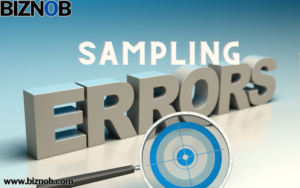What does sales intelligence mean?
Sales intelligence is a type of business intelligence that uses technology to help sales teams and companies learn more about their target markets and possible customers to make more money.
Sales data tells you about how customers act, how the market is changing, how your competitors are changing, and where you can grow. It takes information from inside and outside sources and turns it into valuable insights that can be used to make sales plans that work and find good new leads.
Users of sales intelligence solutions usually have access to real-time analytics, predictive insights, automated lead scoring, customer segmentation, complete account profiles, easy-to-use visualization tools, interactive dashboards, AI-powered suggestions, advanced collaboration tools, automated email marketing campaigns, and more.
These features help sales teams make faster, better choices by giving them actionable insights that can be used to set priorities for tasks based on risk, reward, or predictions. Because of this, sales data can benefit businesses that want a better return on their sales efforts.
Other names for sales intelligence software are sales recruiting tools and sales data.
What is the point of sales intelligence?
Sales intelligence aims to help sales teams learn more about their customers, target market, and the overall state of the business. They can find profitable opportunities and choose which leads to follow with more knowledge. Sales intelligence can help sales reps make better plans for reaching out to leads by giving them data-driven insights into how customers act and what they like.
To create a complete market picture, sales intelligence technology uses advanced analytics to gather data from various sources, including customer records, social media sites, website metrics, CRM systems, CPQ software, and more. With this information, sales reps can quickly find possible customers who meet their criteria and come up with ways to reach out to them that are specific to their needs.
Sales intelligence can do more than gather helpful information about potential customers and market trends. It can also keep track of how current customers behave over time. This information can be used to create customer loyalty programs that give discounts to people who bring in new customers or reward them for buying from you again. It’s also easy for sales reps to monitor key performance indicators like the number of leads that turn into sales, the average order value, the number of repeat customers, and the total customer satisfaction score. By keeping track of these metrics, the team can see how well they are doing generally and where they might need to make changes.
In the past few years, sales intelligence technology has changed the way companies market themselves in a big way. Thanks to solid analytics tools, sales reps have found helpful information that would have stayed hidden otherwise. They can make better decisions about handling sales opportunities and write persuasive messages that appeal to potential customers by using this data-backed information, which gives them a better understanding of the market.
Why sales intelligence is useful
As sales have become more digital, sales intelligence has become an essential part of the process. It could also completely change how sales teams work. About 65% of businesses use sales intelligence tools to get information about their customers and use that information to boost their sales.
Sales intelligence gives sales teams a clearer picture of the customer’s business, which helps them better understand the customer’s needs and develop custom solutions that meet those needs. By helping businesses target suitable leads and close more deals, sales intelligence can help them make more money if they have the correct data and analytics.
Find opportunities with a lot of value.
Predictive analytics can help you find high-value business opportunities, one of the best things about sales intelligence. The team can quickly find the most profitable leads with predictive analytics, guess which customers will likely buy, and predict how much income will grow. This helps the team determine where to put their resources to get the best results when finishing deals.
Complete profiles of each customer
And finally, sales intelligence gives sales teams access to fuller profiles of customers that include more than just basic contact information and personal information. With this customer information, teams can learn more about how a customer acts and what they like so they can adjust how they interact with them. For instance, they can use this information to send each prospect a personalized message that speaks to them or to ensure that the goods or services they receive are right for them based on what they have bought and how they have interacted with the company.
Marketing campaigns that work better
The information that sales intelligence gives you can also be used to help with marketing campaigns and make lead-nurturing tactics work even better. Marketers can make better campaigns that reach the right prospects with the right message at the right time in their buying journey by looking at customer profiles, hobbies, purchase history, and other data.
Simplified the sales process
Lastly, sales intelligence helps companies take charge of the whole sales process by letting them see how leads are scored, if they meet the requirements, and when a deal is closed so they can make choices based on real-time information. Companies can keep track of progress and quickly change their strategies to keep deals in the future and close more business with this level of visibility across multiple channels.
Helps with making products
Sales intelligence can also help with product development by telling you which features customers like best, how the competition is doing in the market, and where new product or service possibilities lie. This information can help internal decision-making and resource allocation go more smoothly.
Getting access to data in real-time
With sales intelligence tools, sales teams can get real-time data that helps them make quick, intelligent choices. Thanks to automation features, they can handle much data faster than ever; this lets them make more accurate sales predictions, divide customers and prospects into groups, send better messages, and do better market research. Adding artificial intelligence (AI) to sales intelligence has also made it easier for teams to look at how customers behave and tailor their outreach based on how they have interacted with the company.
Where to Get Data on Sales Intelligence
There are many places where you can get sales information. It can be found in the company’s public records, on the internet, in competitive studies, or from the customer.
Records kept inside
Since the data comes straight from the company, internal records are the most accurate source of sales intelligence. There is customer information from CRM platforms, CPQ and sales engagement tools, billing records, and logs of how the product or service was used. These pieces of information can tell you a lot about how well the business is doing and how well its goods or services are doing.
The Public’s Money
You can also get helpful information about sales from public sites. This includes economic data, market reports, and industry trends that help the company determine how the market for its goods or services is doing. Companies can also determine customers’ feelings about their goods or services by monitoring public opinion through polls, social media posts, or focus groups.
Competitive Research: The internet is another excellent place to get sales intelligence data because it gives you access to valuable data, like the prices and features of competing products. Competitive research is also essential for understanding the sales environment as a whole. Businesses should study the tactics their rivals use and keep up with any changes they make to their goods or services, as well as any new products that come out in the market. This will help them keep up with their competitors in the market share race and give them an edge over them.
Customer Feedback: Finally, customer feedback is constructive for collecting sales intelligence data because it tells how customers feel about the product or service. Companies should actively listen to what their customers say through polls or talking to customer service reps. This way, they can keep improving the customer experience and the products and services they offer based on what their customers say.
Overall, businesses can get sales intelligence data from many different places to better understand where they stand in the market and what they need to do to stay competitive. When companies use these sources correctly, they can make intelligent choices that will eventually lead to better sales.
Software for sales intelligence
Sales intelligence tools are pieces of software that gather, analyze, and give you information about sales data. This software can help sales teams find trends and make better choices by collecting data from various sources, such as customer relationship management (CRM) systems, marketing automation tools, lead scoring databases, configure-price-quote (CPQ) software, sales engagement software, and more.
Market trends, customer demographics, competitive analysis, and website analytics are some things a sales intelligence tool can gather. By using this helpful information, sales teams can better target their messages and maximize their efforts to get the best return on investment. Companies can also use this tool to see what sales strategies are working and what aren’t so they can make changes as needed.
People who use sales intelligence platforms can get an interactive dashboard to look more closely at the numbers most important to their business. Since salespeople can view the data anytime, they can get real-time insights that help them act on trends or quickly find new business opportunities. Users can also see their progress over time and how well their strategies work against their goals on this site.
A sales intelligence tool helps companies see all the latest trends and chances to make as much money as possible while lowering risks. Because they give you much more detailed information than standard reporting, these platforms are beneficial for increasing sales and staying competitive.














































